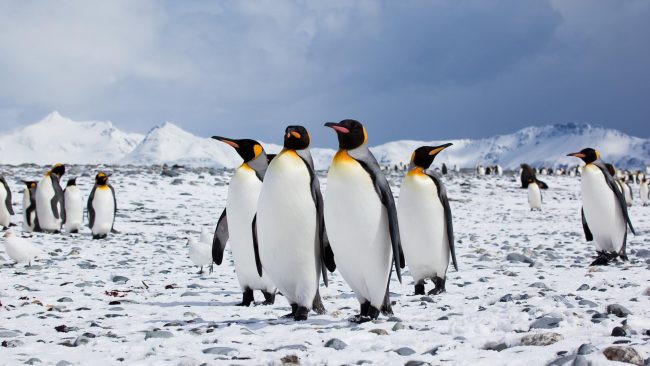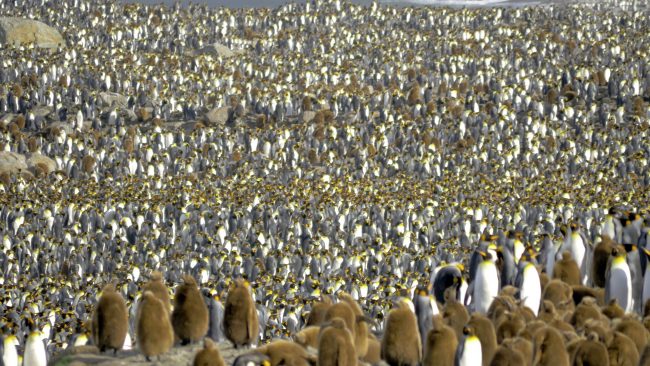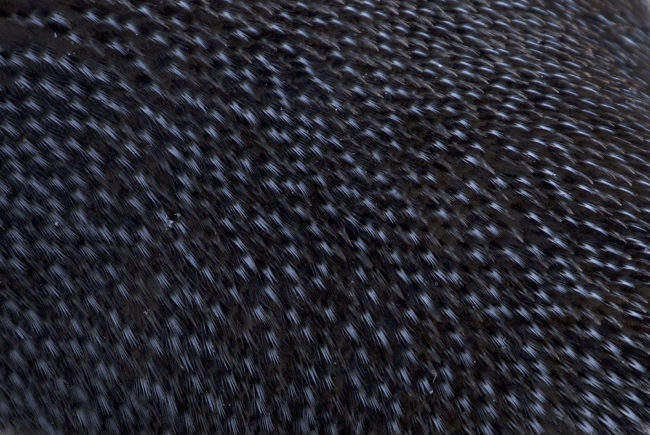Living beings in the world adapted different styles of life-based on their requirements and availability. Like this, Penguins are also surviving in their hometown with a harsh cold climate which is known as Antarctica. Antarctica is the region present in the southern hemisphere of the world. Antarctica has winter temperature at the south pole is around -490C.
Penguins are the typical class of family of the birds. The leading cause for their living in the extreme cold climate of Antarctica is seafood like fish, krill, and squid, which are abundantly available, and these foods are rich in oxygen. Not only penguins other aquatic animals like whales, leopard seals, dolphins, and other seabirds are also sustaining their one life in the cold water.

Penguins are the class of flightless birds as well as aquatic birds too. There are 18 species of penguins in the world that differs from their body weight, height, body patterns, etc. All 18 species won’t live in one place. They distributed throughout the southern hemisphere and other islands.
Can Penguins freeze to death?
Antarctica has a freezing temperature up to -490C; humans or any other warm-blooded animals cannot survive in this deadly cold temperature. Though penguins are warm-blooded, they can sustain in the cold temperature.
Penguins are capable of tolerating the extreme cold, especially the emperor penguins. They can live through heat up to -200C or below. The penguin body becomes a defense system for them to protect from the brutal cold.
We may get a query that- If penguins are warm-blooded, how do they survive in the cold? How their body nature helps them to fight against and adjust to the cold weather? The answer is below.
How do the penguins survive in the Antarctic?
As discussed above, penguins cannot freeze to death; the Antarctic environment is the home for penguins where they feel comfort though it is not a comfortable environment. Flippers of their bodies help them to swim underwater, and webbed feet help to walk on land. Their sharp beak and rearward pointed tongue help to catch the food without slipping though they are slippery.

Since they feed on the fish, krill, and squid, they have to hunt or swim depth in cold waters. The size of their bodies made them not feel cold at all. Though they are not big animals like Seoul and whales, their body size is enough to tolerate the cold. To prevent themselves from the extreme cold, they crowd together in a tightly packed group to conserve heat and protect from the cold winds.
How does the penguin’s body help to sustain?
As we know, penguins are flightless birds, but they can swim and sustain in freezing water. Penguins have an inbuilt character that helps them to overcome the freeze which is known as blubber i.e., a thick layer of fat present under the surface of the skin. About 30% of the penguin’s body has layers of fat. This layer of fat protects penguins against the harsh cold.
Warm-blooded water animals such as penguins, whales etc.are protected from this fat layer which operated down to 25.80F. This temperature is because when seawater freezes, we can’t get the cold water than without it being a solid-state.

In addition to the thick fat layer, penguins have one more insulation feature which helps them to remain warm are feathers. Penguin has waterproof plumage; in simple words, they have tightly packed, overlapped, waterproof feathers to keep them warm.
The dark body part of the penguin absorbs heat from the sun which helps them to remain warm. The gland near the tail provides a coat of oil to feathers to increase their water-resistant power.
Feathers are not much helpful underwater because the temperature of the sea is -2.20C, so it is difficult to waterproof. But they are beneficial on land; they provide a second layer of protection and drying off the plumage.
How do penguins protect their feet and flippers from freezing?
To remain active penguin has to maintain high body temperature. The whole body of the penguins helps to maintain stable temperature except for two parts of the body, i.e., feet and flippers. Yes, feet and flippers have very poorly protected layers so they can’t help in conservation of heat means leads to a lot of loss of heat. But they help in cooling down during hot days.
As said above both flipper and feet don’t have those insulating layers then how can they protect from freezing?. To survive in this brutal climate, they have to fight against the harsh wind chills as cold as -600C and snowstorm of 200 km/h or 124 mph.
Penguins won’t let the feet freeze, which means they don’t expose their feet to icy winds they cover the feet with their fat layer covered feathers.
If feet or flippers get a freeze, it leads to inactivity. They have a solution for this problem, i.e., the muscles of the feet and fins are not present in those parts; instead, they are present in the warmer parts of the body. So they can be active and generally operate if they get cold.
One more process that helps them to keep warm is countercurrent heat exchange. This process present in the organisms that use parallel pipes of flowing blood in the opposite direction to save energy.
https://www.youtube.com/watch?v=OL7O5O7U4Gs&t=1s
Conclusion
Due to the adaptation of their marine lifestyle, they have to live in a cold climate and islands. All penguins species don’t live in the southern hemisphere, only two species - Adelie and emperor penguins live there. Other species live in temperate waters, in waters around New Zealand and surrounding seas.
Due to global warming, the lifestyle of penguins is getting threatened, which leads to the melting of ice and an increase in water level. Due to fishing, not only penguins other aquatic animals are not getting enough food. If this gets continued, it leads to an unhealthy environment, and it may give away to become extinct.
Reference:
https://www.quora.com/Why-do-penguins-live-in-the-cold-How-have-they-adapted-to-these-conditions
https://www.quora.com/How-cold-can-penguins-get
http://www.primaryhomeworkhelp.co.uk/adaptations/penguins.htm
https://www.coolantarctica.com/Antarctica%20fact%20file/science/cold_penguins.php
#cold #do #feet #live #penguins #why